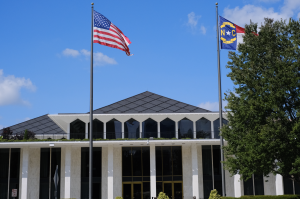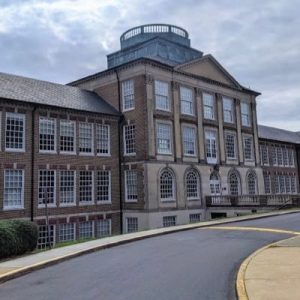Black Student Alliance honors Black History Month
Multicultural organizations collaborate to support Black students on campus
February 17, 2022
In recent years, Wake Forest University has been working toward increasing its diversity; diversity of thought, diversity of opinion and diversity of experience to create an engaging environment for students from different backgrounds.
Yet, Wake Forest University is still lacking in racial diversity — the student body is only 7.8% Black or African American, which some students have described as isolating as they struggle to find a community in college.
“I feel like I don’t have a voice here,” an anonymous freshman said.
During this year’s Black History Month, Wake Forest’s Black Student Association (BSA) and other on-campus multicultural groups have been hard at work creating an inclusive environment for Black students to celebrate our history and community.
These organizations are hosting conversations and speeches to highlight how the Black community has developed, struggled and overcome hardship. These events allow students a chance to explore the small but significant Black community on campus, creating connections and offering a supportive environment.
The BSA has planned a wide array of events ranging from movie nights and roller skating to presentations on Black history and networking sessions in order to celebrate Black excellence at Wake and set current students up for success.
On Feb. 16, Anneliese Bruner, an acclaimed author and editor and great-granddaughter of a Tulsa Race Massacre Survivor visited Pugh Auditorium to speak on her contributions to the book “The Nation Must Awake” and the Tulsa Massacre.
The Black Student Association’s Instagram, @wfu_bsa, described the speech as explaining “the importance of fact-based, accurate teaching of history in shaping how a nation defines itself.”
The last event that the BSA will hold this month, in collaboration with the Association of Wake Forest University Black Alumni and the Office of Personal & Career Development, is a Black Professionals Forum. Here, Black alumni will lead a panel followed by a career networking session.
So far, BSA events have garnered overwhelmingly positive reviews from the public. Alex Silverio, a sophomore at Wake Forest, stated that the BSA’s “Celebrating the Black Arts Event” was both “insightful and exciting.”
“When I was a freshman there was COVID-19,” Silverio said. “It’s nice that this year Black freshman can see they aren’t alone. It’s hard to see it in classes or when you’re in the Pit, but there is a good community here.”
Silverio expressed excitement at the other events that the BSA has planned this month, stating that roller skating will be a fun experience and that he hopes to connect more with the Winston-Salem community through a Martin Luther King Jr. reading event.
He also noted the important role that the BSA fulfills on campus — voicing a sentiment commonly expressed by the university’s Black students.
“At Wake [Forest], it is painfully obvious you’re a minority,” Silverio said.
Others agreed; “I’m in my second year here, and still have never had a Black professor,” an anonymous sophomore said.
Some said being a part of a small community made them feel closer to the other minorities on campus — including the professors.
“They understand what it’s like [being a minority] and work harder than anyone else to see you succeed,” sophomore Alex Silverio said. But others feel that this small community is not being supported. Despite Wake Forest’s commitment to diversity and the organizations celebrating this Black History Month on campus, some students feel there is still room for improvement.
“The BSA and Office of Inclusion are great, but once you leave those spaces you don’t see any more support,” an anonymous freshman said.
The BSA and other organizations on campus are working diligently to create an engaging community that shows the history, culture and success of the Black community with the goal of showing Black students on campus a welcoming community and spaces of support in a primarily white institution.











